Background:
Continuing an evaluation of the Mk7 Golf R IC, the intercooler is installed in my GTI and data is logged during a series of street pulls.
This evaluation follows a flow test of the Golf R IC.
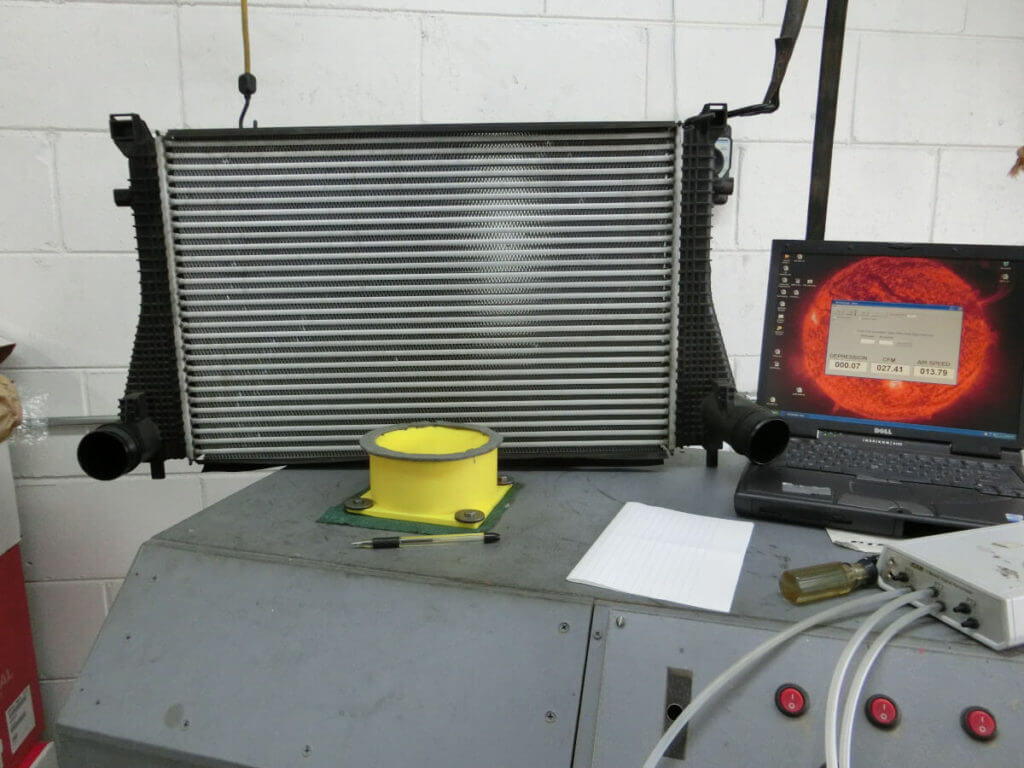
Test Procedure:
The GTI is equipped with a Shuenk IS38+ turbo operating with a custom EQT tune. Data of interest is logged during full-throttle third gear pulls that begin around 2000-2500 rpm and conclude about 6300-6500 rpm.
Pulls are repeated to gather multiple data points to calculate averages.
Test Results:
Some data for the test drive are shown on the chart:
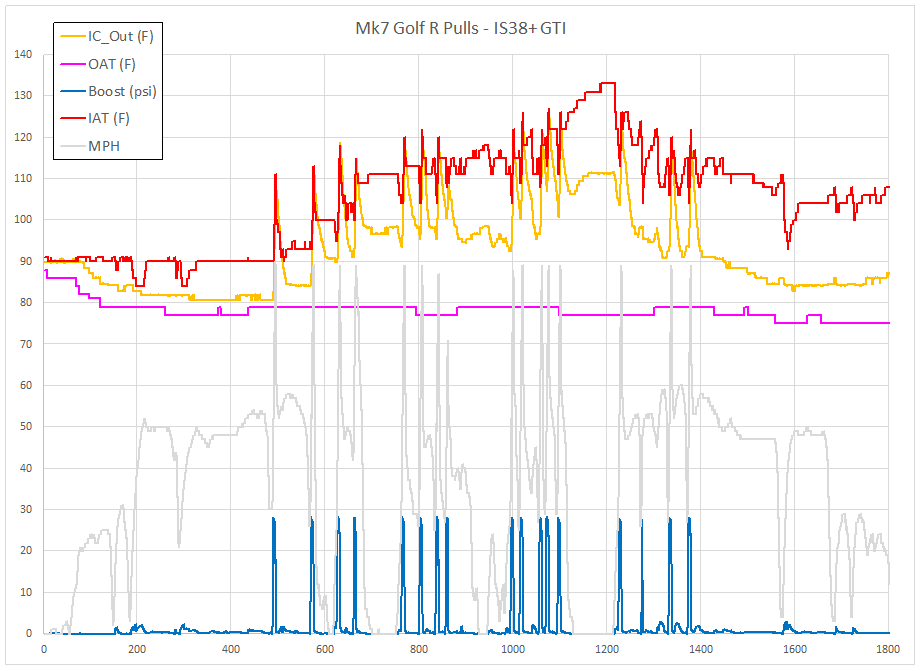
IC_Out is the air temperature exiting the intercooler. OAT is the outside air temperature. IAT is the air temperature inside the intake manifold.
The time frame where pulls are made is shown on the following chart:

The temperature at the turbocharger outlet (T_Out) is added to the following chart:

IAT from the Golf R IC and an aftermarket IC are compared in the following chart:
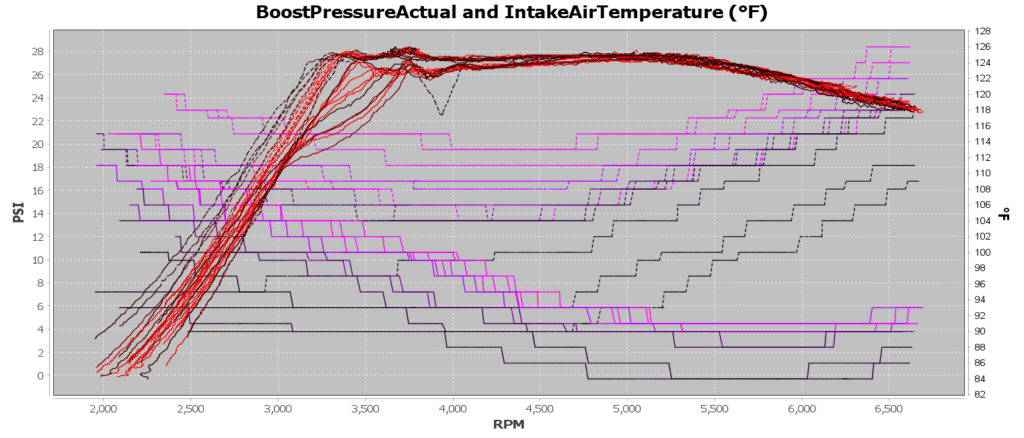
The Golf R intercooler IAT (dashed lines) trends upward more quickly than the aftermarket IC (solid lines).
The MEAN temperature above ambient at 6000 rpm is 36 degrees Fahrenheit.
This result combined with the flow test result is shown on the following chart:
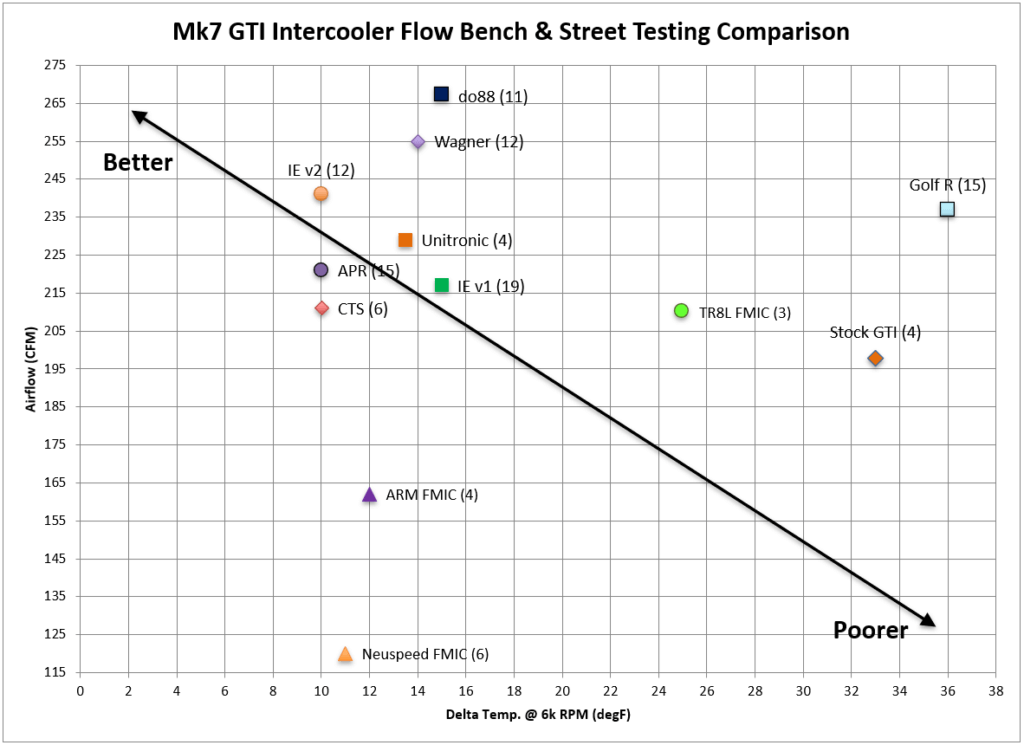
Note: The Golf R IC temperature is slightly higher than the smaller GTI IC. This is likely due to the number of pulls made with the Golf R IC compared to the number made with the GTI IC. As the number of pulls increases the IAT delta tends to also increase.
The following chart shows the pressure drop between the turbo compressor outlet and the intake manifold. The mean value is approximately 2.7 psi:
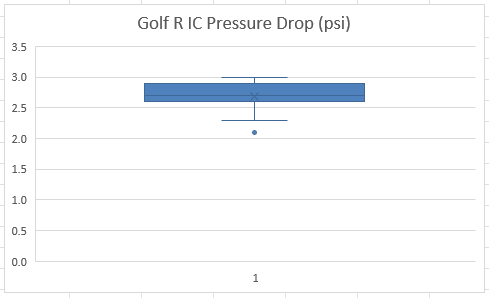
The next chart compares Virtual Dyno estimates for wheel horsepower when operating the GTI with an aftermarket IC (blue box) and the Golf R IC (orange box):
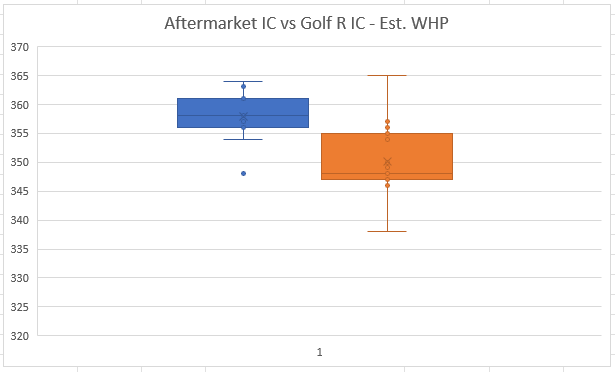
Sample estimates for each intercooler are compared using a t-Test to see if there is a statistical difference between the two data sets:

The aftermarket IC produced approximately 8 whp more on average than the Golf R IC, and the result is statistically significant, which means the difference is not likely to be due to variation in the samples.
The WHP estimates for both intercoolers are plotted versus pull number to see how “heat soak” affects the power produced using each intercooler:

Trend lines for both data sets show that with consecutive pulls the WHP estimates decrease slightly.
Conclusions:
The Mk7 Golf R intercooler was installed in an IS38 equipped GTI to record temperature values during full-throttle 3rd gear pulls.
The average intake air temperature above ambient air temperature was 36 degrees at 6,000 rpm.
The average pressure drop between the turbocharger and intake manifold was 2.7 psi.
Wheel horsepower estimates using Virtual Dyno were calculated using the Golf R intercooler and found to be approximately 8 whp less than when using an aftermarket intercooler.

Great stuff. The virtual dyno data is a nice addition to your recent posts. Thanks for the work that goes into this.
The temp results for the stock GTI and stock R are so close. Is it possible that your setup (compared to stock) pushes them together (or overwhelms both to a similar degree)?
Thanks Bill!
My guess is that it comes down to the number of data points I have for the R vs GTI and the recovery time. Lately, I’ve been pushing the intercoolers harder than I did when I started out testing them, and I suspect that is influencing the results to show higher IATs.